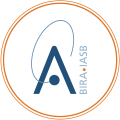In the new BBC documentary "Greta Thunberg: A Year to Change the World", Greta engaged in conversation with scientists all over the world, including the atmosphere and climate researcher Dr. Jenny Stavrakou of the Royal Belgian Institute for Space Aeronomy.
BIRA-IASB is sending an instrument to Venus. The VenSpec-H instrument will fly with the EnVision mission, which has just been selected by ESA and is planned for launch in 2031-2032.
On June 11, ESA astronaut Thomas Pesquet will be installing sample cells for a new experiment, FOAM-C, for the Belgian space control centre (B.USOC) on board the International Space Station.
We know the drill. Economic and industrial growth are the cause of rising levels of carbon dioxide (CO2) in the Earth’s atmosphere. This being a greenhouse gas, it traps heat from the sun and causes the atmosphere to warm up gradually, wreaking havoc in the fragile Earth system, its flora and fauna. Surprisingly, CO2 has another side effect, a cooling effect. Stop yourself, however, if you think this could compensate for global warming.
A new book on the magnetospheres in our solar system has been published by Wiley. It has been co-edited by our BIRA-IASB colleague Dr. Romain Maggiolo. Based on 13 years experience in the “Magnetosphere” research team within the “Space Physics” department, he was approached to be the main editor of this book.
Acid rain is over ten times more acidic than pure rainwater, causing damage to structures and buildings, but most importantly to vegetation (e.g. food crops). BIRA-IASB researchers contributed to a study, lead by the ULB and the German FZJ, which finally sheds light on the formation mechanism of formic acid, a substance that has an impact on the acidity of the atmosphere and rainwater.







